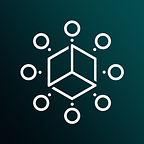To better understand the entire range of possibilities that Dataeum provides, we are doing a series of Use Cases that are going to give a non-exhaustive set of examples, and here’s the next one.
Managing Mosquitos
It is always a surprising statistic to hear that something as small as a mosquito can be the leading cause of death all over the world. However, the mosquito does not act alone or with intent – it is merely the female mosquito’s need of an amino acid found in blood. Unfortunately, parasites within some mosquitos can then be transmitted to human beings and cause a range of illness including Zika Fever, Dengue Fever and Malaria among several other illness.
Usually the Ministry of Health would direct interventions against mosquitos. They need to know a lot of information at any one time – the more up-to-date and the more precise the information the better. Already we know Dataeum can provide highly accurate, verified and updated mapping data. However, that data can be further enhanced rapidly by data collectors, for instance in an emergency situation.
Let’s look at an emergency scenario where following a rainy season in one part of the country, a Ministry of Health needs an accurate image of an outbreak on the ground. Data collectors who are members of the community (as well as resident medical staff) will be empowered by the Dataeum app to help build an accurate picture of the situation.
Members of the community can collect data about residual water pools where mosquitos breed. Insecticide spraying teams will know exactly where to go to treat potential mosquito breeding grounds, these areas will be marked as treated and update to a map immediately through Dataeum. After several days, data collected by the community will also be used to monitor the effectiveness of the treatment.
Meanwhile medical teams can gather further data on patients they are treating; their supplies; as well as give daily updates on the progress of their treatments. The community can assist medical teams to find homes of people unable to come for medical attention. The Dataeum platform will be able to share the exact address, contact details and number of people in need with the medical teams. This can help the Ministry of Health anticipate the level of need in the community and prepare accordingly.
All this efficient sharing of information can be achieved in one single decentralized market, relying on crowdsourced data. The data gatherers would be rewarded for their input through XDT Tokens. Very necessary and regular updates to maintain the optimum accuracy of this data will attract more rewards for data gatherers. When the worst is over, international organizations like the World Health Organization and pharmaceutical companies, might have an interest in the same data. Their interest may be to better understand how to prevent and treat future outbreaks. The data would potentially reward all the relevant gathers once again if it were to be purchased for study by those organizations.
People have been making positive strides in the fight against mosquitos through many interventions including technology. Good results have been achieved from low tech solutions like medicated mosquito nets, however with a cutting-edge solution like Dataeum, even stronger achievements can be realized.
